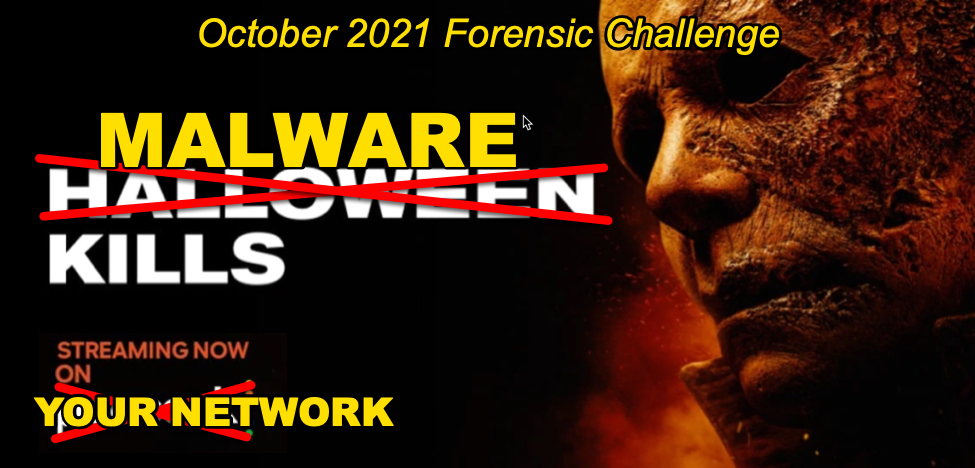October 2021 Contest: Forensic Challenge
Introduction
Today's diary is a forensic challenge for October 2021. The files are here. This month's challenge is based on a packet capture (pcap) of an Active Directory (AD) environment with three Windows clients that become infected. Each infection is based on an email, and the three emails that caused these infections are also provided. Your task? Match each email to its infected Windows client.
Participants who submit the correct answers will be entered into a drawing, and one lucky winner will receive a Raspberry Pi.
Rules for the contest follow:
- Only one submission per person.
- Participants who submit correct answers will be entered into a drawing, and one will win.
- Submissions should be made using the form on our contact page at: https://isc.sans.edu/contact.html
- Use
October 2021 Forensic Challengefor the Subject: line. - Provide the following information:
- Match the email to the infected Windows host and user. Your answers should look something like:
- 2021-10-21-malicious-email-1102-UTC.eml - DESKTOP-PEQUOD - captain.ahab
- 2021-10-21-malicious-email-1739-UTC.eml - LAPTOP-NAUTILUS - captain.nemo
- 2021-10-21-malicious-email-2214-UTC.eml - DESKTOP-NCC1701 - james.kirk
- Match the email to the infected Windows host and user. Your answers should look something like:
- Potential winners should have a mailing address what we can easily ship the Raspberry Pi to.
Submissions will be accepted through Sunday October 31st, 2021. Everyone who submits the correct answers will be entered in a drawing, and the winner will be randomly chosen. The winner will be announced in an ISC diary on Thursday November 4th, and that diary will also provide analysis of the infection traffic.
Material for this month's forensic challenge is located here on malware-traffic-analysis.net. The page contains links to two zip archives. One zip archive contains a pcap of network traffic from AD environment. Another zip archive contains the three malicious emails.
NOTE: Be very careful, because this material has actual malware that could infect a WIndows computer. I always recommend people review pcaps and malicious emails in a non-Windows environment, if possible. If you don't know what you're doing, you should not participate in this contest. Instead, wait for analysis in our upcoming ISC diary with answers and analysis on Thursday November 4th.
Requirements
Analysis of the infection traffic requires Wireshark or some other pcap analysis tool. Wireshark is my tool of choice to review pcaps of infection traffic. However, default settings for Wireshark are not optimized for web-based malware traffic. That's why I encourage people to customize Wireshark after installing it. To help, I've written a series of tutorials. The ones most helpful for this quiz are:
- Wireshark Tutorial: Changing Your Column Display
- Wireshark Tutorial: Identifying Hosts and Users
- Wireshark Tutorial: Display Filter Expressions
- Using Wireshark - Exporting Objects from a Pcap
I always recommend reviewing the pcap and emails in a non-Windows environment like BSD, Linux, or macOS. Why? Because the material contains Windows-based malware. If you're using a Windows host to review the pcaps and emails, your antivirus (or Windows Defender) may delete or alter them. Worst case? You might accidentally run some of the malware and infect your Windows computer.
Final Words
Again, material for this month's contest is available here. As stated earlier, we will accpet submissions through Sunday October 31st, 2021. Everyone who submits the correct answers will be entered in a drawing, and the winner will be randomly chosen. The winner will be announced in an ISC diary on Thursday November 4th that will also provide analysis of the infection traffic.
---
Brad Duncan
brad [at] malware-traffic-analysis.net



Comments